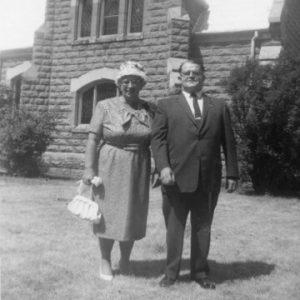PART 1
No fuss, No funeral, No Service
by Penny Allport | Life Cycle Celebrant
 No fuss, no funeral, no service, are words I’ve heard for many years from parents and friends, to others nearing the end of life. Some feel this takes pressure off their loved ones and focus off themselves. This choice also defers conversation about one more aspect of the subject we would just rather not talk about – death.
No fuss, no funeral, no service, are words I’ve heard for many years from parents and friends, to others nearing the end of life. Some feel this takes pressure off their loved ones and focus off themselves. This choice also defers conversation about one more aspect of the subject we would just rather not talk about – death.
As the death positive movement grows, our conversations are expanding and what originally appeared as taking a burden off our loved ones just might well be a weight of another sort.
Okay! I’m biased as a Life-Cycle Celebrant, however bear with me for a moment, while I share from personal experience.
In Grade 7 my paternal grandfather died. I remember it was Grade 7 as our teacher, Mr. Reid, taught our class Cemetery Study. No, it wasn’t in the curriculum! Shivering in the autumn chill, my classmates and I followed Mr. Reid out behind a football field through a rusty metal gate into the lumpy uneven ground of a pioneer cemetery. Warmed by the fire of curiosity, I remember feeling I had entered a mysterious and magical place. The cemetery was not manicured or cared for by mechanical means like todays sprawling lawns more likened to a golf course than an enchanting land of wonder. Instead, stones tilted and tipped, some appearing as though the earth herself was taking them deeper into her belly.
From October into spring we studied the pioneers of this village, through researching names inscribed on tombstones, many related to my classmates. We designed our own modern day tombstones (1970’s), epitaphs and eulogies, memorized the Cremation of Sam McGee by Robert Service and spent months exploring other cultural customs and practices. This was the first time I would hear the word ancestor, and have carried a life-long interest in both death customs and ancestor care from this formative experience.
It was February 1976, in the middle of Cemetery Study when Grandpa Carmen died. As was custom in the Anglican Church in this small Ontario village, we gathered at the funeral home for a wake. I remember touching his embalmed face and hands buttoned into a brand new suit never worn while he was alive. My grandfather was sixty-nine on the day he returned from the tailor after being measured for a new suit, sat down in the kitchen of his home and suffered a fatal heart attack.
In my imagination and experience, life as I knew it stopped just as suddenly for several days if not a week. I was taken out of school and my parents, brother and I moved into my grandparent’s home, where family and friends poured in and out for days. Endless plates and bowls of food arrived as the kettle whistled and aproned women washed dishes, chatting in the kitchen. The hum of conversation is still palpable to my ears.
On the second or third day a funeral was held. Many people I speak with have grown a dis-taste for the word funeral. Simply, it means a ceremony to honor the dead, where the body (or cremains) is usually present.
After the funeral for my grandfather we drove in a long procession following the hearse, all the way from the church to the cemetery. Cars stopped and flashed their lights in acknowledgement, pausing to honor the dead. I remember feeling held by the larger community. It was February and the ground was still frozen so my grandfather’s body was placed in a vault until spring when we would return for burial. In my young imagination I remember seeing his body in a stack of coffins out in a shed in the cemetery waiting for the ground to thaw. It was strange and yet through actually having touched his body, I knew the grandfather I knew and loved was no longer present in the body I was touching.
In early spring we gathered for a small and shorter ceremony in the cemetery. Again, it seemed like everything else stopped and our attention was with making our final goodbye to my grandfather’s body. More food, more timeless time and more stories for sure, as Carmen Allport was known for his story telling and jokes.
Fast forward to 2000, when my paternal grandmother died. In 1989 I had moved west to British Columbia. On my last visit home to Ontario, where my parents, only brother and his family, and most of my cousins still reside, my Grandma Gert said – don’t come home for my funeral dear, I don’t need any fuss. You’ve been here plenty while I’ve been alive.
I took her advice and didn’t fly home for her funeral.
That same year I travelled to Bali. In Bali, you can hire a guide and attend cremation ceremonies. The Balinese welcome any and all to attend, and even post signs on sandwich boards on the street sharing the time and place. The more the merrier, as cremation comes after many days of mourning when everyone has opportunity to be present with the body, place offerings of blessing, gratitude and prayers and be together in time out of time. The cremation ceremony offers time for gaiety and play, laughter and celebration. This is what will carry the soul of their loved one into their next journey.
As John and I and our guide arrived to the village a procession was forming behind the family home. The body was carried out of the front gate and transferred into a large tiered wedding cake like structure on a bamboo grid frame. The sons of the deceased woman climbed onto the top of the moving edifice as a dozen men lifted the entire arrangement off the ground. Family and neighbors poured out of nearby buildings into the streets, flowing like tributaries into a sea of people.
We joined the procession following a long line of women carrying baskets of fruit and food on their heads. Colorful sarongs and sashes, baskets of flowers and offerings, the scent of incense burning and live musicians, drumming and chanting moved the procession effortlessly like a school of colorful fish. As we entered the cemetery grounds, families spread out, children played and ate from small food and candy carts, young men wrestled and cajoled each other as we witnessed the open pyre cremation. Every sense in my body was stimulated, even some I didn’t know I had.
I remember imagining this as my own grandmother’s ceremony. When I first arrived at the procession, I noticed the large photo posted on the back of the structure carrying the body was of an elderly woman. I was surprised to discover the years of her birth and death revealed she died at the exact age of my grandmother, 91. In that moment I had decided to surrogate my grandmother and consciously honor her by participating in this woman’s ceremony.
And yet, to this day, I still feel some loss for having not taken the time to fly home to be with my family. As much as the experience in Bali was profoundly moving and stirring, not participating in my own grandmother’s funeral I missed the opportunity to actually feel my grandmother’s death by being with her body absent of her spritely presence. I missed the opportunity to experience ceremony with my cousins and extended family, hear and share stories of her life, and even learn new ones from the years I had lived at a distance.
Grief is a somatic experience, meaning our bodies are attuned to the deep loss of someone close to us. Gathering together allows us to digest our loss in a larger container of care – in community. Something profound has changed in our world. Slowing down, breaking the spell of daily life and being with others when a death occurs is a bio-need. Animals seem to know this better than humans – tending the immediacy of loss, and ceremony as a biological response.
Stay Tuned!
Look for Part 2 of No Fuss, No Funeral, No Service in our next Newsletter.
